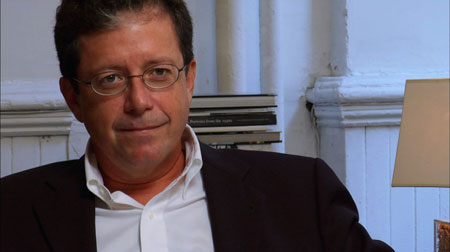Family, Friends & Lovers looks at the importance of relationships and why they are central to emotional well-being. What are the cognitive and neurological processes underpinning everyday interactions, and can they help us understand why some relationships flourish and others fail?
 VIEW LARGER This Emotional Life Part 1
VIEW LARGER This Emotional Life Part 1
THIS EMOTIONAL LIFE Family, Friends & Lovers: Dr. Amador
Viewers meet a young boy, adopted from a Russian orphanage, whose story illustrates how attachment in infancy fundamentally shapes his ability to build relationships for years to come. Viewers also meet young parents of newborn twins; a couple in therapy for a troubled marriage; a teenager who was bullied with tragic consequences; two women grappling with the stress of workplace conflicts; and others — all to better understand the importance of social connections and relationships.

By submitting your comments, you hereby give AZPM the right to post your comments and potentially use them in any other form of media operated by this institution.